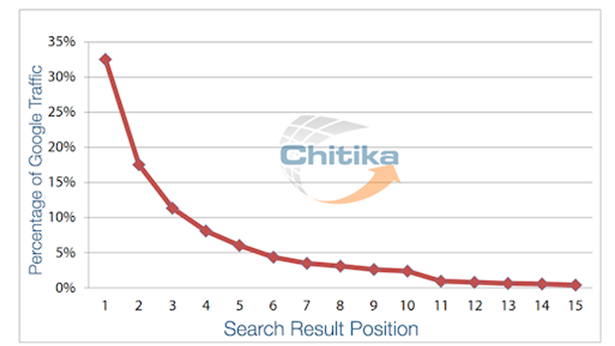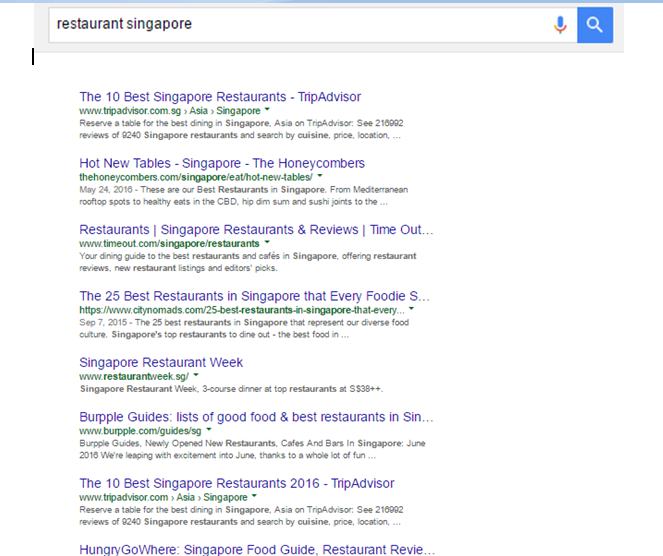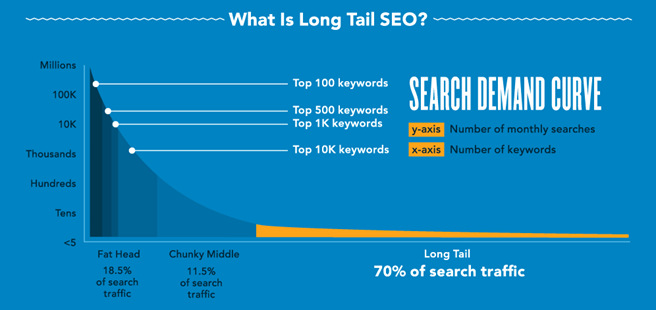The truth about SEO and ‘free’ traffic from Google
Photo credit: Pure Content
When presented with the option of pay-per-click advertising vs search engine optimization (SEO), almost everyone I speak with opts for the latter. The justifications range from, “It’s free traffic, why not?” to “I don’t really click on ads anymore.” Totally valid, except that free traffic from Google isn’t really “free”. It comes at a price. I am also not referring to the price you pay for engaging a SEO agency. Assuming you are doing SEO in-house (which gives you more control over the quality), let’s explore the true costs of SEO.
You are sitting on thin ice
When I first started doing SEO seven years ago, it was for my tuition agency business. I bought an exact match domain, stuffed it with keywords, religiously built backlinks from a variety of sources, and crossed my fingers. My prayers were answered, and the website began showing up on page one of the Google search results page within a few months. Voila! I enjoyed free traffic (and leads) from Google while doing maintenance SEO work.
Good days don’t last. The tech giant started cracking down on greyhat methods, and people like us were affected. I learnt that the boundaries of white, grey and black areas will always change. I was just doing what everyone was doing, but it didn’t save me from Google’s massacre. They gave it an innocent name, Google Penguin. So my website was penalized, and a few months of effort went down the drain while I built a new website.
I was not the only one. There has even been reports of penalization of huge websites like Ebay’s, which caused them to lose $200m. BMW and Expedia were not spared either. The bottom line is that relying on Google for organic traffic is like sitting on thin ice. It is gonna break anytime.
You don’t choose when it rains
In my case, I was (still) considered lucky. My SEO efforts paid off, and my website ranked on Google for a considerable amount of time before it was dropped. For many others, they’ve experienced paying a fortune and not getting ranked, or their own efforts were simply futile. This is again because we are subjected to the whims of Google. They call the shots as to what websites appear. Granted, it may be the case of unskillful SEO implementation, but in many cases, we are just fighting a losing battle. We can save a lot of heartaches by doing a little bit of ground work in advance.
I have had people come to me with a set of keywords, hoping that these will allow their websites to appear on the first page. This is an example of a set of keywords someone once came up to me with:

The top three results are household names. It is no coincidence. A little over 3 years ago, you might have seen websites like onlineshoppingsingapore.com on the results page, but Google has since gotten much cleverer than just looking at keywords now. It is able to provide users with what they actually want.
Businesses that are often talked about on the ground have a much better chance with Google. But you will ask, how does Google, a robot, know the sentiments of Singaporeans? Don’t forget that they have lots of user data, one of which being the search volume of every single key phrase. The number of people searching for “Zalora” is a whopping 110,00 A MONTH on average. This suggests to Google that “Zalora” is a strong brand! (You can check the popularity of your brand on keyword planner.)

Given that the first three websites in SERP corner more than 60 percent of the clicks and there is no way to outrank these brands, I discouraged the business owner from pursing SEO for this keyword in the first place.

Image credit: Search Engine Watch
This trend has drastically affected how we view Google’s organic traffic (at least for me). It has come to a point whereby one has to get traffic before being ranked, instead of using ranking as a means to get traffic, ironically.
Does that mean that small, relatively unknown companies have no chance of being found on Google at all? Well, that’s not true. Read on to find out more.
Content rules
This brings me to case study two, of a restaurant trying to be discovered under the keyword “restaurant singapore”. 

A simple Google search reveals that none of the top 10 results are websites of restaurants. 0.
All of them are content websites; either blogs, review sites or forums. Again, there is no chance of the restaurant owner’s website being found there.
However, if you are running an online bakery, a cooking school or any business targeting food lovers, can’t you set up a blog and write about the same topic? Food for thought. No pun intended.
It is no secret that Google encourages webmasters to provide high quality content in its guidelines. As its algorithm improves, it becomes better at detecting good content. You hence can see more of them ranking high on the search results page in recent years.
That’s where content marketing comes into the picture. Yes, I’m talking about the trendy kid on the block. One of the reasons content marketing has drastically taken off lately is partly due to its potential for SEO. Content marketing is really a small company or startup’s best bet against big brands.
Again, I have to reiterate that free traffic from Google isn’t really free. Some companies (even SEO agencies) have misconstrued Google’s advice and produced content for content’s sake, writing articles not readable by human beings, and merely contributing to the noise out there. Today’s web visitors have an attention span of 8 seconds, and will only pay attention to real substance.
Quality content involves a certain amount of research, analysis, brainstorming and thinking to put together, all of which takes time (and money if you hire a writer). If you do your math, the costs of the content will probably outweigh the costs of paid advertisements.
Given all that, is SEO dead?
Far from it actually. It has only become more sophisticated and all-encompassing. I probably said this more than once, but we just got to look at SEO differently.
Introducing the SEO paradigm for 2016 and beyond.
1) SEO is no longer a science but an art as well. It used to be more about tinkering with codes such as robot.txt, meta tags and anchor text, etc. Automated link submission software were prevalent. With the rise of Facebook and social media, Google has another weapon in its arsenal to gauge users’ preference. Marketers swear by the impact of social signals on SEO. Geeks like us have to learn how to be social as well. Things like building relationships with influencers on social media and producing content that flames peoples’ motivation to share are all part of the learning curve.
2) SEO shouldn’t be thought of as a silo anymore. Its results are closely intertwined with that of several other facets of your business. Brand searches, site architecture, social media signals, usability of the website and content production will all have an impact on Google’s opinion of you. There is an article in Searchengineland by the title of “Your job as an SEO isn’t actually SEO.” The takeaway for startup founders is that you either do SEO in-house, or use a provider who understands your business (and not just “build links”).
3) Do not target keywords, target user intent. Create content that solves users’ problems, because if you please users, you please Google. A more concrete way to put it would be to conduct longtail SEO. Longtail keywords are phrases longer than 3 words and generally in the form of questions. They are getting more common, especially with the proliferation of Google Now and Siri. This graph shows that 70 percent of search traffic is longtail!

Photo credit: Neil Patel
If you adopt the new SEO paradigm above in your online marketing strategy, you will be very safe. Getting sustainable organic traffic will be a byproduct provided that you take on a long term perspective.
However, not every business is suitable for SEO. If you can’t do SEO, fret not. Today’s digital environment provides a myriad of platforms for you to market your business online. Consider paid ads, remarketing, Facebook targeting, email marketing and others. If you are already doing well on Google, congratulations! But do explore diversification in your traffic sources as well, because you never know when the ice will break.

Post a Comment